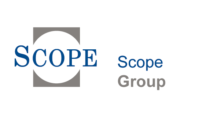
Bron
Scope
Scope has published an innovative and disruptive approach to ESG that is independent of companies’ own sustainability reports, takes global supply chains fully into account, and assigns specific monetary values to ESG factors.
“ESG investing has grown into a multi-trillion-dollar market. Yet assessing the sustainability of any business faces three major challenges,” said Diane Menville, head of ESG at Scope and a former market and counterparty risk specialist at the World Bank.
“First, existing sustainability scores primarily rely on non-standardised self-disclosure by companies. Second, a key part of environmental and social impact stems from supply chains, but corporate sustainability reports cannot integrate the entire supply chain. Third, selecting different sustainability indicators and uneven weighting makes it difficult to compare the results.”
With its new ESG Impact Review, Scope has addressed these challenges head-on through an original, comprehensive and objective approach to analysing and scoring corporate sustainability.
Scope’s ESG Impact Review:
- takes an independent approach that relies on publicly accessible and recognised international data sources (e.g. OECD, ILO, World Bank). The resulting ESG score provides a macroeconomic estimate of harmful environmental and social impacts of a company’s economic activities.
- measures the impact of all three ESG factors – environment, social, governance – by including the global value chain, starting from the source of raw materials by country and industry, their subsequent refinement and production to final assembly of the product or service. Scope’s model combines impacts across about 450 sectors in 47 countries or regions.
- attributes a monetary value to a company’s ESG impacts. Monetisation allows aggregation of different indicators and also offers a more readable interpretation of the result. This allows investors and issuers to compare companies and sectors.
“Providing investors and issuers with transparent, data-driven analysis and scoring the full ESG impacts of companies – including their supply chains – has never been as important as it is today. It is vital for gaining investors’ trust and supporting the transition to long-term sustainable finance,” said Florian Schoeller, founder and chief executive of Scope Group, owner of Europe’s leading credit rating agency.
“Scope, as the leading European rating agency, has a crucial role to play in facilitating sustainable long-term investment – by raising a European voice about sustainable finance”, Schoeller added.
Scope is providing investors with its ESG analysis through the ScopeOne digital platform, comprising more than 1,600 companies in the MSCI world stock market index. Scope’s ESG methodology is applicable to the whole universe of corporates, from small and medium-sized companies to large listed multinational enterprises.






